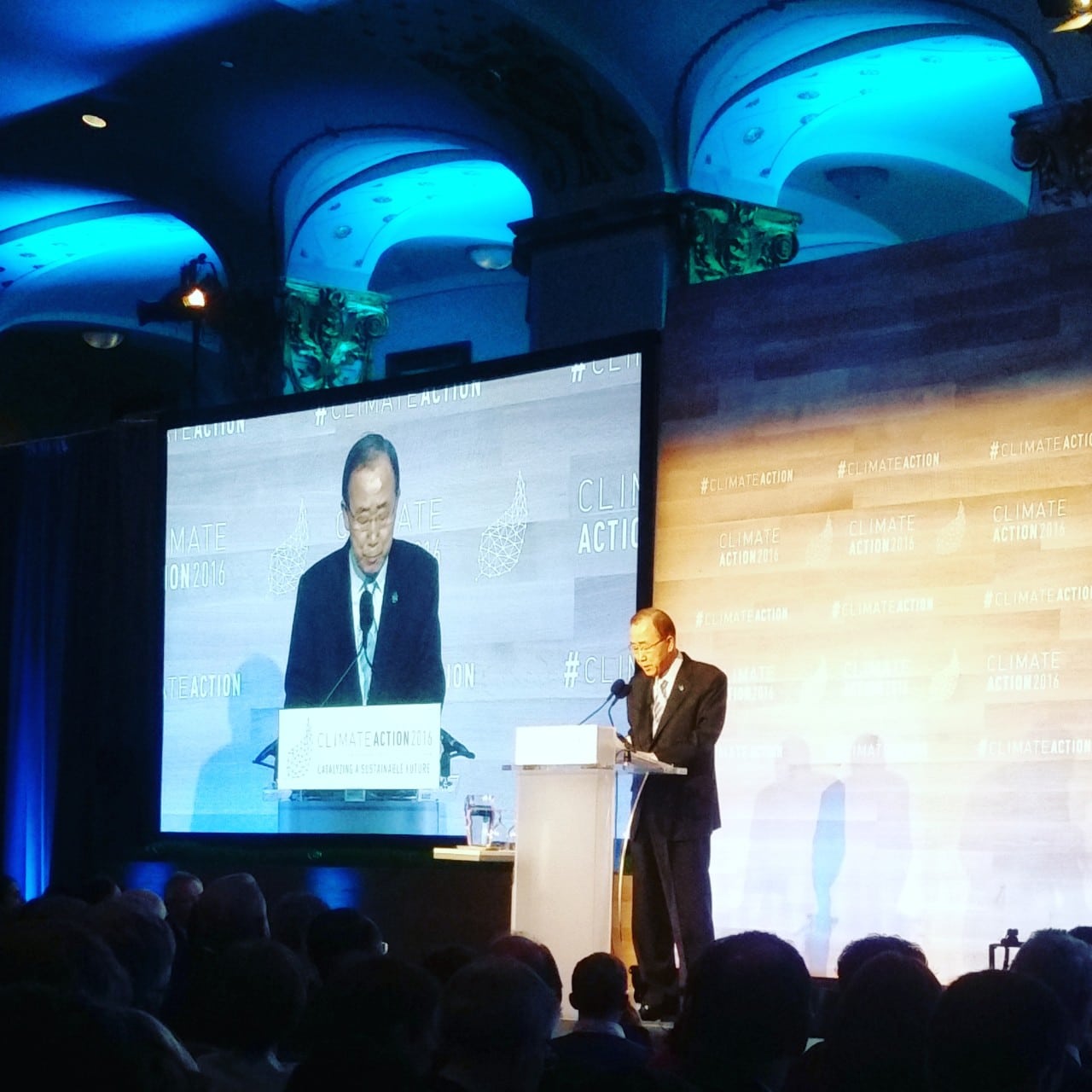
Building on the momentum of the Paris climate change negotiations, participating states should work to bring the resulting agreement into force “at the latest by next year,” United Nations Secretary General Ban Ki-moon told reporters Thursday.
Ban was building on comments made earlier in the day during a keynote presentation at the Climate Action 2016 event held in Washington, D.C.
“Last year the world united to create an ambitious sustainable development agenda to transform the global economy, bring new opportunities to billions of people, and leave a more habitable planet for future generations,” Ban said during the speech. “We have to deliver on these promises by working together.”
The Paris Agreement, which was adopted in December 2015 at the 21st session of the Conference of Parties (COP21) of the United Nations Framework Convention on Climate Change (UNFCCC), will come into force once at least 55 nations, representing at least 55 percent of global emissions, sign it and submit documents of domestic ratification, acceptance, or approval.
The accord, the first international climate agreement to apply to both developed and developing nations, opened for signature April 22 and was signed that day by 175 nations. At that time, 15 nations also submitted their documents of ratification. One more nation – Seychelles — submitted its ratification document one week later. These 16 nations represent only .04 percent of global emissions.
The United States and China, together representing roughly 38 percent of global emissions, have indicated their intentions to join the agreement before the end of the year, as have Albania, Antigua and Barbuda, Argentina, Australia Bangladesh, Cameroon, Canada, Chile, Comoros, Costa Rica, El Salvador, Ghana, Honduras, Iceland, Indonesia, Jamaica, Kazakhstan, Mali, Mexico, Monaco, New Zealand, Norway, Philippines, Sierra Leone, and the Bahamas. These nations, along with the 16 that have already joined, would represent 49.3 percent of global emissions.
Ban pledged to support early ratification of the agreement. “I will do all I can to help this happen,” he said. ”We must turn the promise of Paris into action and implementation as soon as possible. We need action now.”
Ségolène Royal, newly appointed president of COP21, also urged early entry into force, noting that ratification by the European Union, representing 12.1 percent of global emissions, would put the agreement over the top. Because the European Union filed one intended nationally determined contribution encompassing all of its member states, it is now faced with the challenge of trying to divvy up the responsibility of the INDC, a daunting and likely time-consuming task.
“I want Europe to [be] an example, it’s difficult because we still need to distribute the effort among 28 states with very different energy models, but we have this responsibility, and we must achieve this,” she said through a translator. “[If] the United States, China, India, and Europe ratify then we will arrive at the COP22 with the implementation of the Paris accord and this will really be a tour de force that has been achieved.”
COP22 will be held in Marrakesh, Morocco, in November.
World Bank President Jim Yong Kim warned against inaction on the agreement. “As I watch very carefully what we do, what we have been doing after the Paris Agreement, I’m extremely worried right now we really, really have no time to waste. We cannot delay. As great as Paris was, as excited and inspired as we were by the singing on April 22nd, I think we now have to wake up from the fog of success,” he said. “If we don’t act quickly enough, that would spell disaster for us, for our children and for the entire planet.”